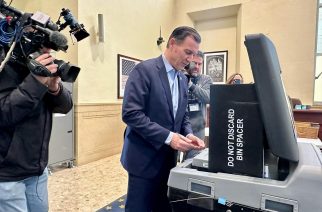
Winners to receive $1 million for plans to advance clean energy and reduce greenhouse gas emissions on campus and in local communities
Gov. Andrew Cuomo has launched the “Energy to Lead Competition,” which challenges student-led coalitions from New York colleges and universities to design and develop campus and community clean energy projects. The competition, part of the REV Campus Challenge which was announced by the Governor in October, has already begun accepting applications.
“This competition will engage our future leaders today in this fight against climate change,” Cuomo said. “I encourage students across the state to get involved and look forward to having their cutting-edge ideas transformed into real projects to reduce emissions, lower energy bills and improve resilience across this state.”
The Energy to Lead Competition is part of the governor’s “Reforming the Energy Vision,” or REV, a plan to build a clean, resilient and affordable energy system. Central to the plan is engaging energy leaders of the future on core issues to help New York achieve its goal of reducing greenhouse gas emissions by 40 percent, generating 50 percent of electricity from renewable energy sources, and decreasing energy consumption in buildings by 23 percent by 2030.
The $3 million “Energy to Lead Competition,” administered by the New York State Energy Research and Development Authority is open to student-led coalitions from two- or four-year public or private colleges and universities. Applications are available on NYSERDA’s website. Proposals must be submitted by 5 p.m., April 4, 2016.
Submissions should demonstrate innovation in one or more of the following areas: project design, business model, partnerships, and/or curriculum integration. In addition, proposals should describe the project’s potential impact in reducing or mitigating greenhouse gas emissions, as well as how its success can be measured and how the $1 million award would be leveraged to advance the project.
All proposals must feature a least one undergraduate or graduate student from the college or university and be submitted by a faculty or staff member from that institution. Coalitions may include external, third-party consultants or other community members, or represent a collaboration among different institutions on a single project.









